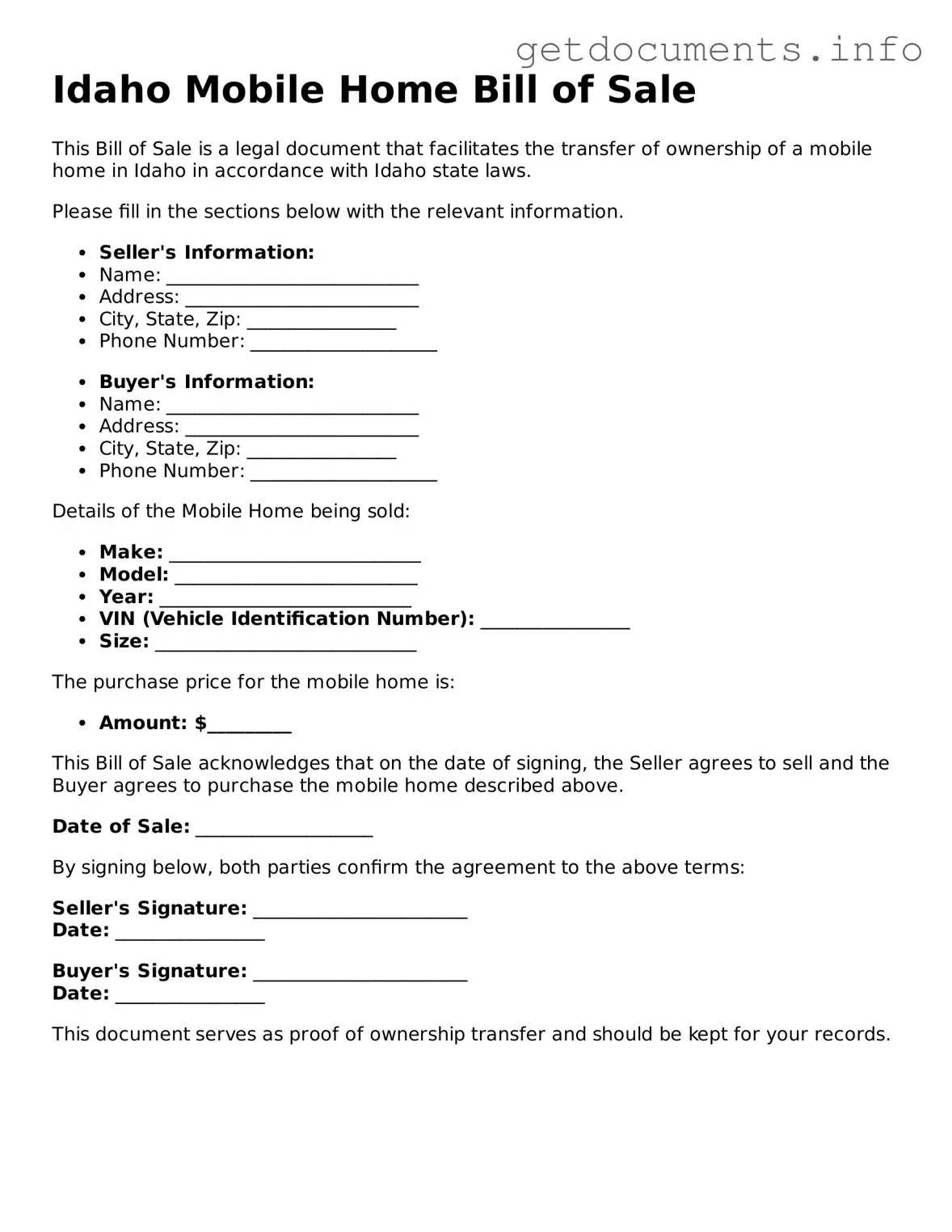Free Mobile Home Bill of Sale Template for Idaho
The Idaho Mobile Home Bill of Sale form is a legal document used to transfer ownership of a mobile home from one party to another. This form serves as proof of the sale and includes essential details about the mobile home, such as its identification number and the names of both the buyer and seller. Understanding how to properly complete this form is crucial for ensuring a smooth transaction.
To get started on your mobile home sale, fill out the form by clicking the button below.
Access Mobile Home Bill of Sale Editor

Free Mobile Home Bill of Sale Template for Idaho
Access Mobile Home Bill of Sale Editor
Got places to be? Complete the form fast
Fill out Mobile Home Bill of Sale online and avoid printing or scanning.
Access Mobile Home Bill of Sale Editor
or
⇩ PDF File
